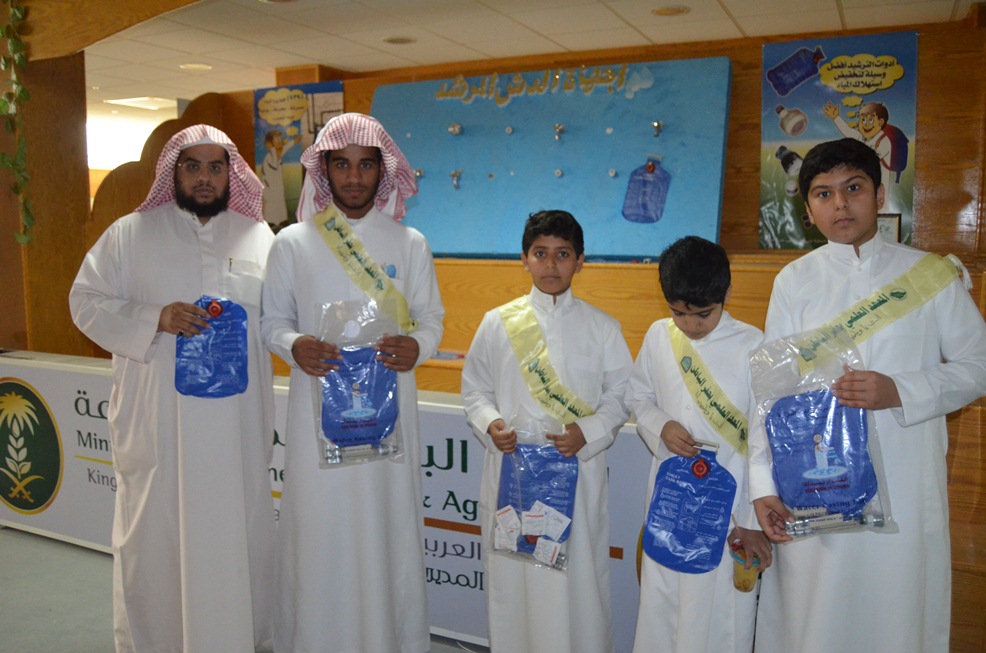In its third activity for this semester, the Scientific Committee of the Department of Physics organized a scientific symposium (Seminar) at exactly eleven o'clock in the morning on Tuesday, 3 Safar 1436 AH corresponding to November 25, 2014, where the scientific symposium was entitled:
The use of nanomaterials in the treatment of contaminated water"
At the beginning of his speech, the speaker touched on the methods used to treat contaminated water, which in turn results from factories and residential neighborhoods, and also referred to the sources and dangers of heavy metals to human health and the methods used to dispose of them inside contaminated water.
In the second part of this presentation, Dr. Imad Omar Mohammed Al-Ghiloufi talked about the manufacture and analysis of nanomaterials that have been used to treat contaminated water, where these nanomaterials consist of nanocarbon, nanoresin, and metal oxides. In conclusion, the speaker presented the most important results obtained by using nanomaterials to absorb heavy metals from contaminated water.
On the other hand, the Scientific Committee of the Department of Physics indicated that these scientific seminars it offers are open to all university employees, including faculty members and students, and aim to spread the culture of scientific research, motivate it and raise its performance among its employees, and they also serve the objectives of the university in supporting science, technology and innovation. These seminars are held weekly between eleven and a half o'clock in the morning in the meeting room of the Department of Physics.
Student clubs organize a water conservation program
The Deanship of Student Affairs, represented by the Vice Deanship of Student Affairs under the supervision of the Department of Student Activities and Clubs, organized a program entitled "Rationalization of Water Consumption in King Abdullah City for Female Students Building 324" on Thursday, 21/5/1436 AH, and the program aims to raise the awareness of the university community of the importance of water as the basis of life and the development of water resources, which has become a vital requirement to ensure sustainable development in all industrial, tourism and agricultural fields by working to change patterns and habits of daily consumption, self-education and mediation. And not to waste it and benefit from the grace of God Almighty.
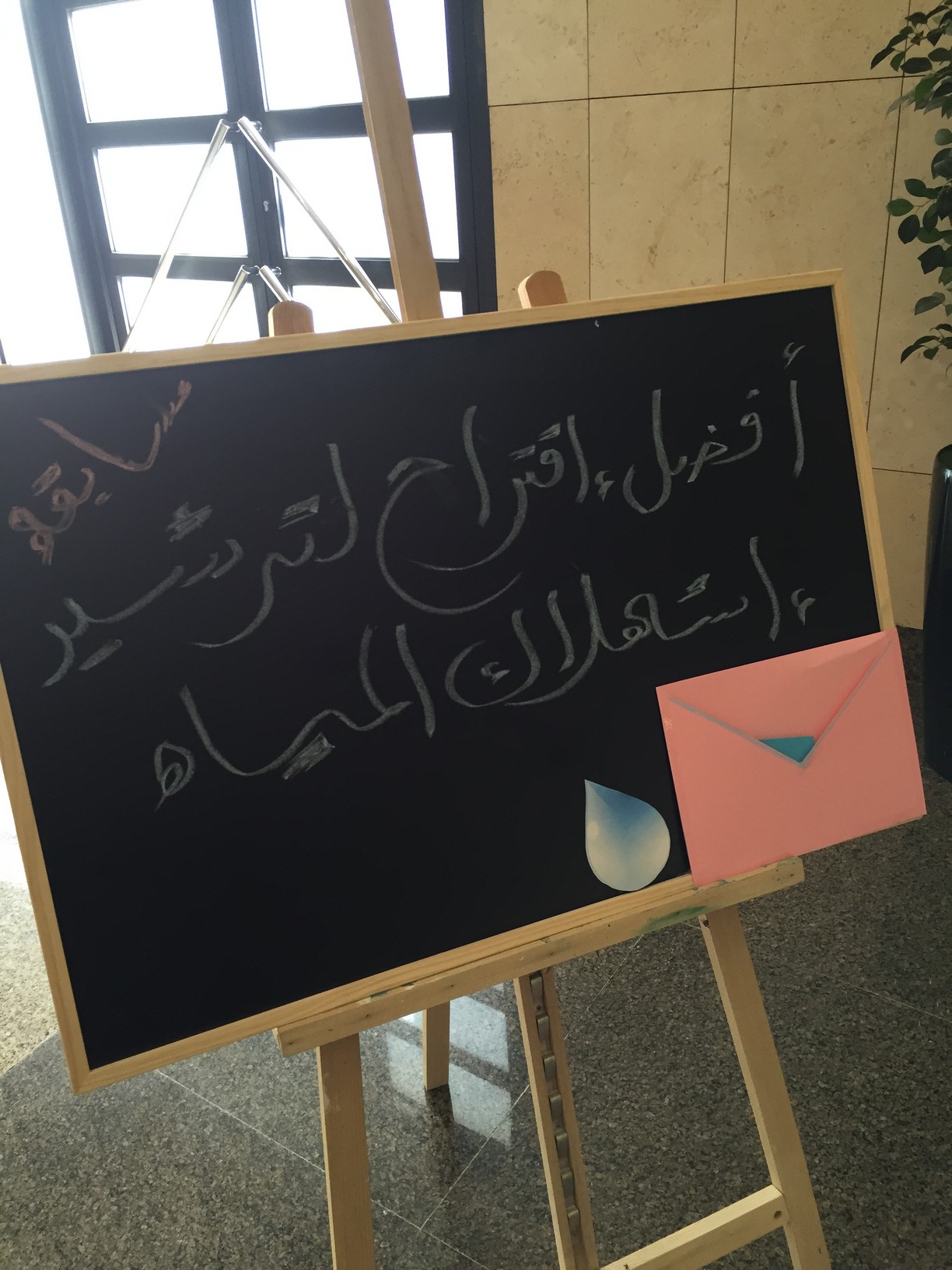
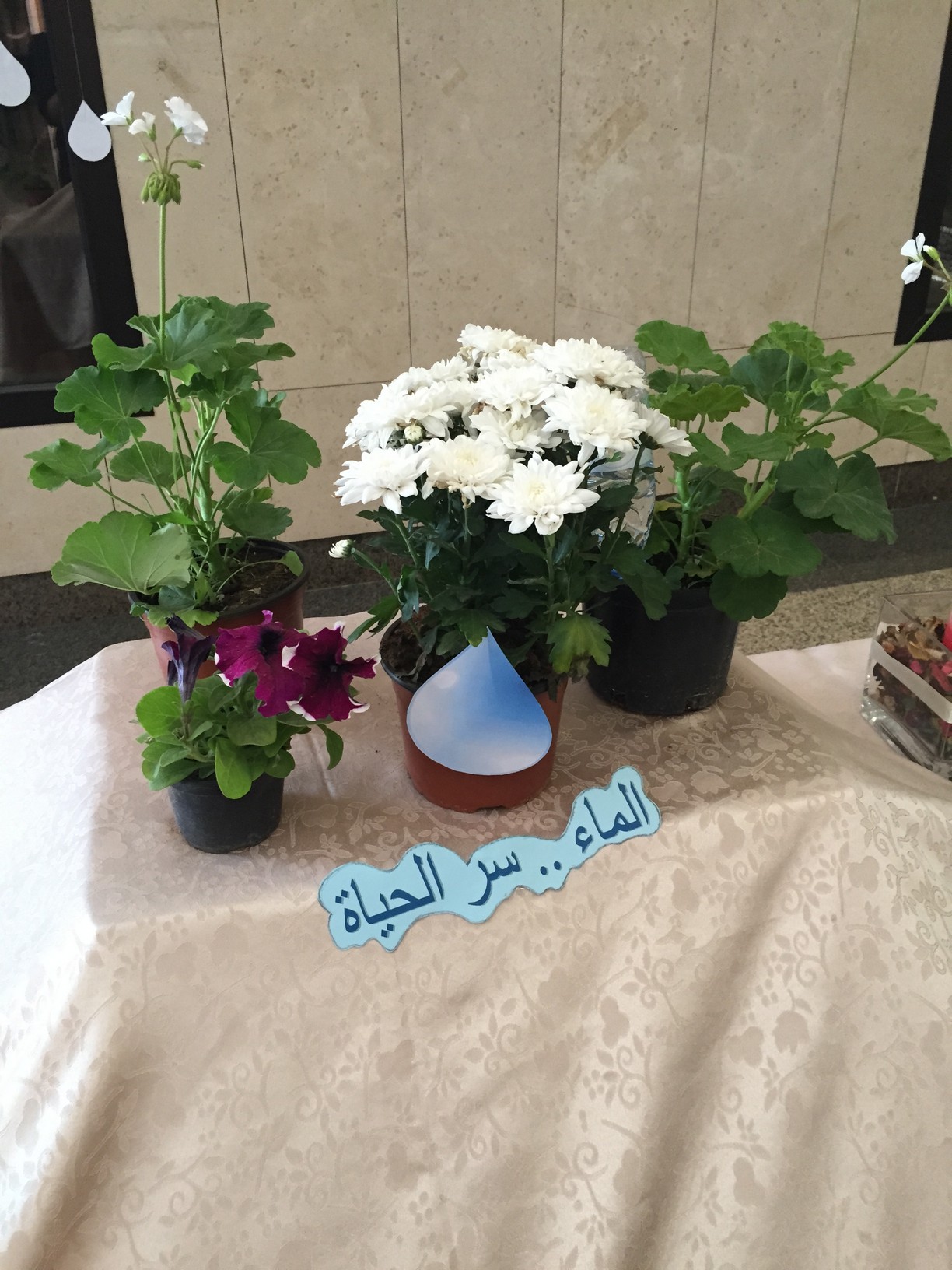
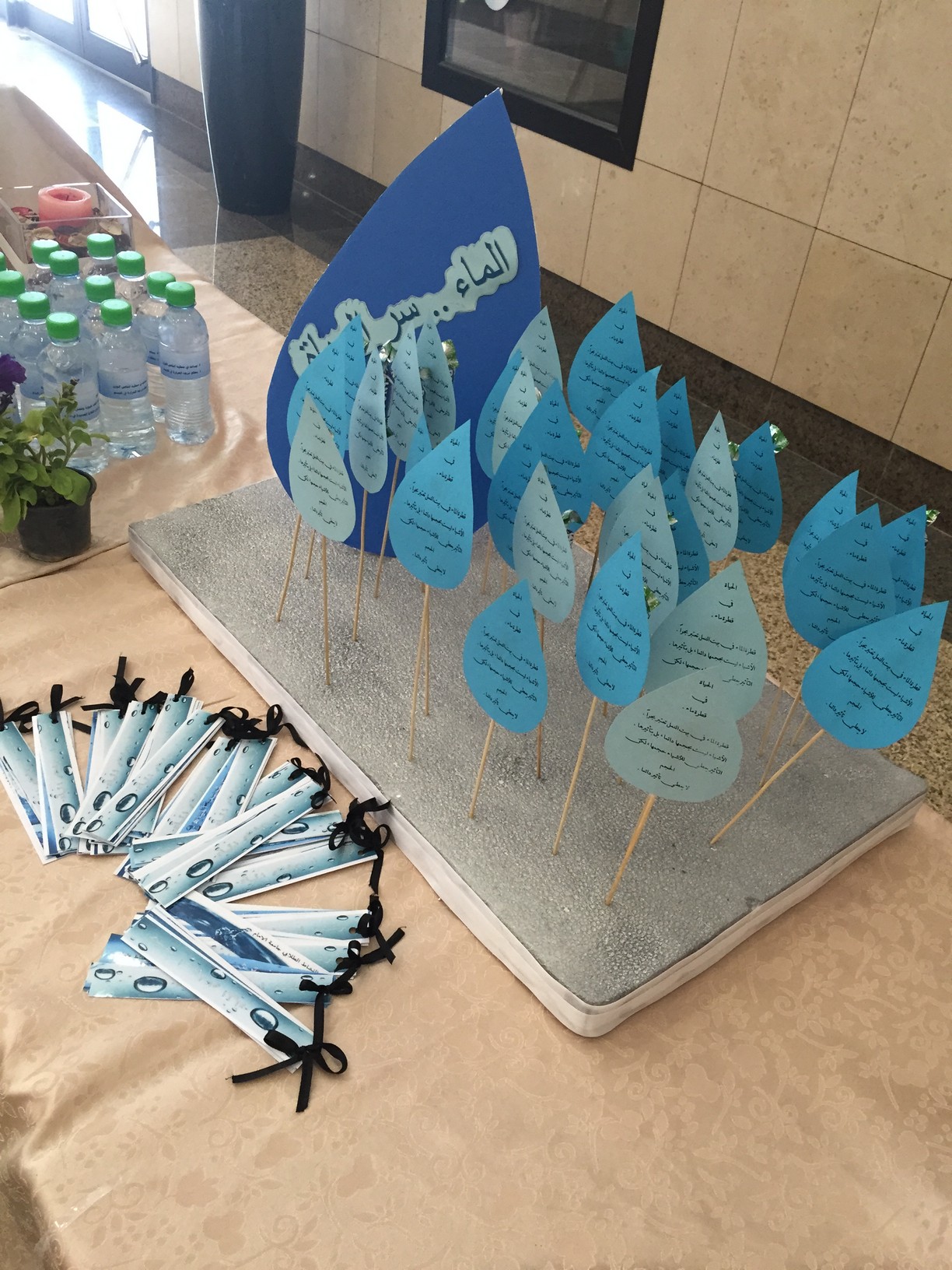
Water Resources Laboratory
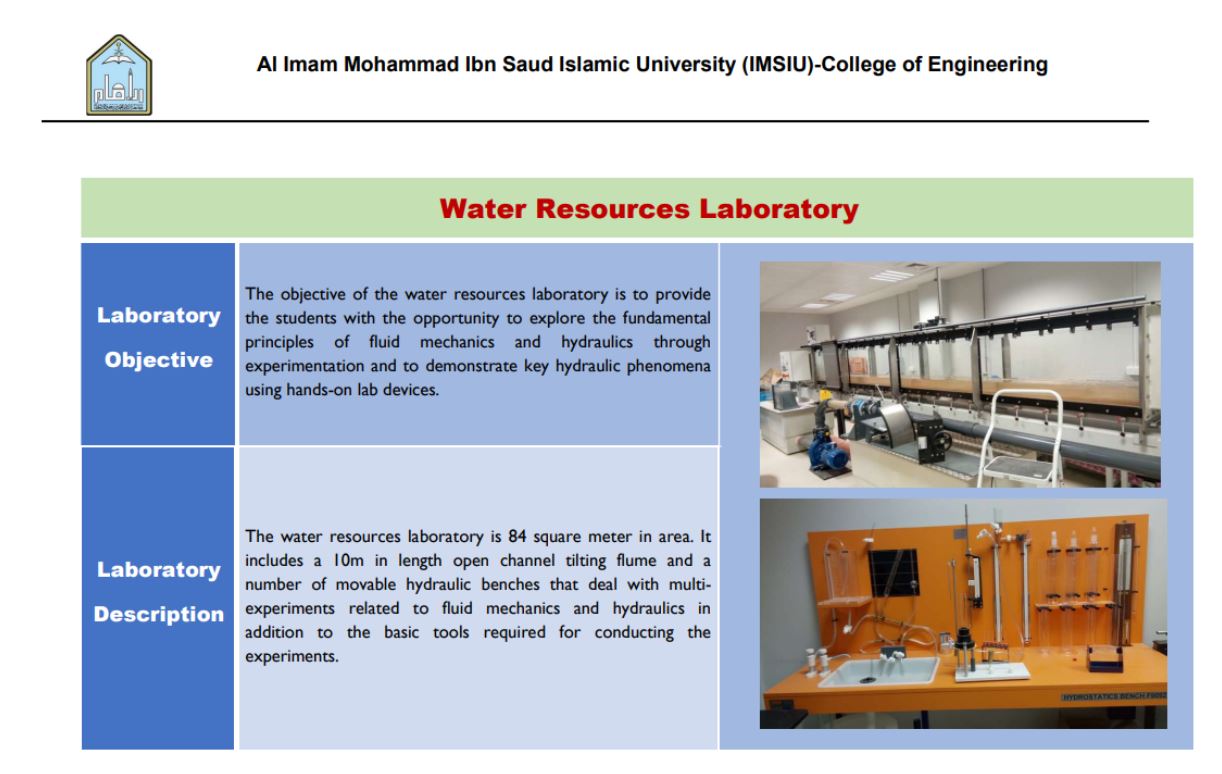
Institute Students visit Ministry of Water Branch in Batin Pits
A student delegation from the institute visited the branch of the ministry of water in the interior drilling as part of the activities of the ninth activity week (and do not entertain) and everyone listened to the branch representative and learned about the way to establish the water system and ways to rationalize water consumption through the devices provided by the ministry to consumers, and the delegation visited the exhibition prepared for it in the branch of the ministry of water.
